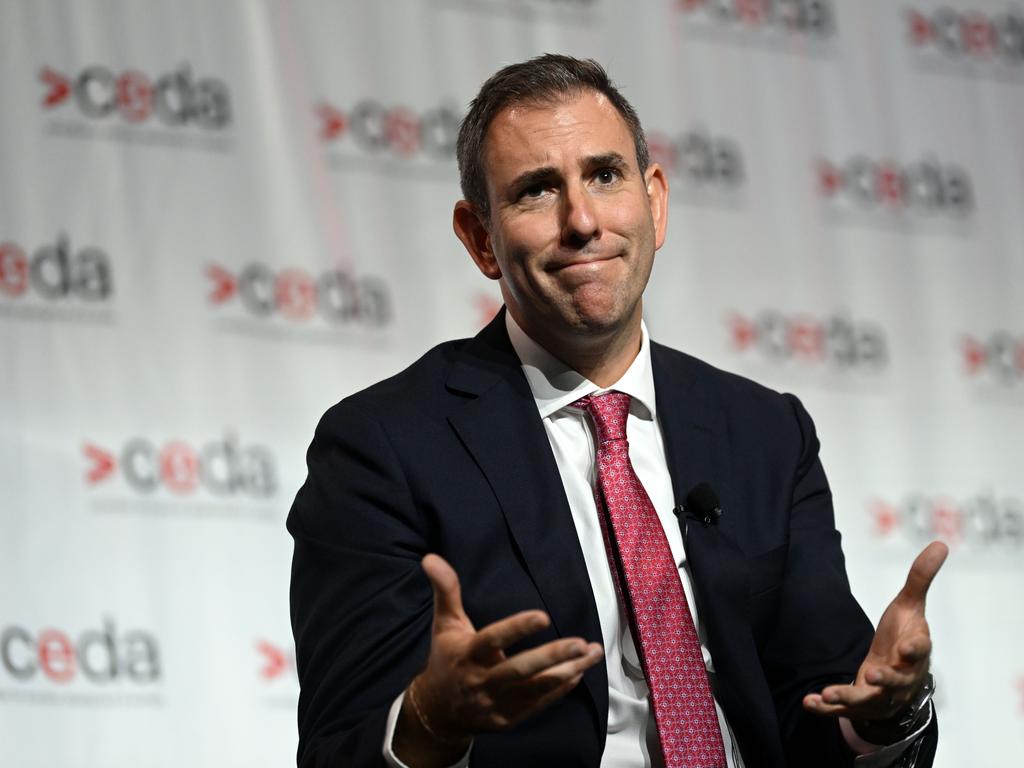University graduates to be slugged with a $4.5bn increase to student debt
Three million graduates are set to be slugged with a $4.5bn increase to student debt this year, as the government pockets a windfall from high indexation.

Three million university graduates are set to be slugged with a $4.5bn increase to student debt this year, as the federal government pockets a windfall from high indexation.
The rise in student loans, resulting from high indexation tied to the rate of inflation, will add $1500 to the average $25,000 debt this year.
The National Union of Students has warned that school leavers struggling with high rent and food costs are dropping out of their degrees or swapping study time for paid work.
It will tell a Senate hearing in Sydney on Friday that student debts are making it harder for young people to buy a home.
“In 2023, young university graduates will be the worst affected by the largest increase in student debt indexation in decades,’’ the NUS says in a submission to the inquiry. “Students and graduates need immediate financial support to combat the cost-of-living crisis by pausing indexation on HELP debt repayments.’’
Three million graduates must repay a record $74.3bn in outstanding debt through the Higher Education Loan Program, set up in 1989 as the Higher Education Contribution Scheme.
The federal government lends students up to $109,206 to pay for tuition fees – or $156,847 for those studying medicine, dentistry, veterinary science or aviation.
Graduates repay the debt gradually through the taxation system once they earn $48,361 a year, just above the minimum wage. Student loans take a decade to repay, on average, although the government has written off debts worth $227m.
The government borrows money for student loans at the Reserve Bank cash rate, which sits at 3.6 per cent.
But the outstanding debt is indexed each June, based on a legislative formula linked to the rate of inflation.
The Australian Taxation Office is expected to announce the indexation rate in May. It maintains the “real value” of the loan by raising it in line with the cost of living, measured by the consumer price index during the year to March. The NUS calculates that the government will profit $670 on the average loan.
“A graduate on a $60,000 entry level position will pay 2.5 per cent of their salary, or $1500 in 2023, as a HECS repayment,” it states. “These repayments will be completely wiped out by inflation.’’
Universities Australia chief executive Catriona Jackson said university students and graduates were struggling with the cost of living. “A student loan doesn’t immediately hit your hip pocket like other loans,” she said.
“Unlike a mortgage or car loan, you don’t pay interest on a student loan, and you’re only required to make repayments when you earn above a certain salary. Inflation does drive up the ultimate size of a student loan, extending the period over which it is paid off.”
The Senate education and employment committee is inquiring into a Greens bill to abolish indexation and raise the repayment thresholds for education and training loans.
The NUS, in a joint appearance with the Foundation for Young Australians, will tell the first hearing on Friday that student debt makes it harder to borrow money to buy a house. “By increasing the amount of student debt they take on, the government is reducing their ability to take out home loans, further locking them out of the market,’’ their submission states.
NUS president Bailey Riley said students were struggling to pay rent and buy food, and many were cutting back time spent studying to spend more hours working. “The government can spend $368bn on submarines but it’s refusing to spend money on students and other people struggling in Australia,’’ she said.
The National Tertiary Education Union, representing university staff, calculates that indexation will reach 6.15 per cent – higher than a typical home loan rate and well above last year’s rate of 3.9 per cent.
Federal Education Minister Jason Clare said graduates did not have to repay their loans until they reached the income repayment threshold. “Affordability issues will be looked at as part of the Australian Universities Accord process,” he said.








To join the conversation, please log in. Don't have an account? Register
Join the conversation, you are commenting as Logout